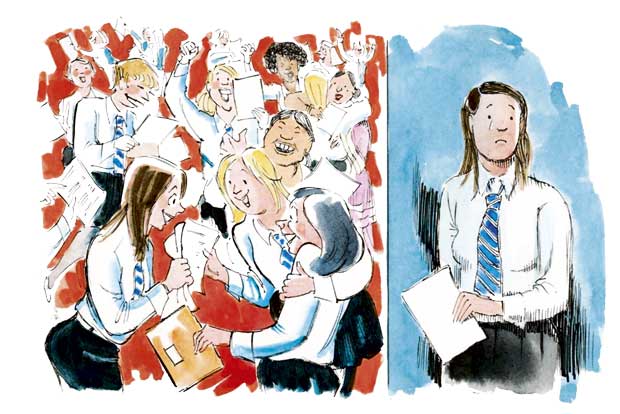Every year — according to Fleet Street legend — the Telegraph prints a lovely photograph on its front page after the A-level results are published. It shows happy, bright young ladies clutching important letters and leaping into the air with glee. These lissom blondes are, of course, the students with straight As. ‘Yessss!’, they have just got into their first-choice university: ‘OMG this is, like, the Best Day Ever!’
What you don’t see is a photograph of the students who fall short of their predicted grades. There will be no leaping, no Daddy buying a bottle of champagne for this lot. They’ll be in hiding, blubbing over the letter or pathetically phoning their director of studies to ask him to perform a miracle.
Not too long ago, I made one of those humiliating calls myself. ‘Um… you know how it says I got a B for French?’ I said anxiously. Yes.
‘Well, please can you double-check just in case it was misread?’ Nope, still a B.
Oh well, I got over it pretty quickly because my grades still earned me a place at York University. But what about those who mess things up badly? I mean the would-be straight-A students who accidentally get ABC (a ‘Justin Welby’), or BBC (an ‘auntie’), or — in these days of grade hyperinflation — AAA when they really need an A* in the mix. These panicking school-leavers will hurriedly start thinking about re-marks and retakes.
There are a few elephant traps to watch out for. When asking for a re-mark, parents and students should remember that marks can go down. And if they do, you’re stuck with the lower mark (and a bill to pay).
A positive change is a rare event. As one exam board warns: ‘The majority of re-mark requests do not result in a change to a grade — simply because the re-mark has shown that the original grade was accurate.’








Comments
Join the debate for just £1 a month
Be part of the conversation with other Spectator readers by getting your first three months for £3.
UNLOCK ACCESS Just £1 a monthAlready a subscriber? Log in